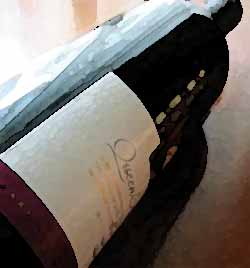Dram
Shop Liability
Dram shop liability or liquor liability
as some call it involves giving or serving alcohol to a person
who then injures a third party as a direct result of the impairment
from the alcohol.
The term "dram" is an American
spelling that historically means a weight, or a small unit of
liquid in which alcohol is sold. In
the 1700's, English taverns sold gin by the spoonful and this
was called a dram (drachm).
Dram shop liability refers to the responsibility of the tavern,
restaurant or other business (or social host) that sells or gives
the alcohol to an obviously intoxicated person or a minor who
then causes harm to another. Dram shop liability laws vary widely
by state in regards to serving alcohol to an intoxicated person.
For instance, ten states such as Nevada have no dram shop liability
laws at all.
Others states such as Illinois, are on the more strict end of
the spectrum and impose comparative negligence upon the chain
of vendors who sold an intoxicated person a beverage during a
night of drinking, including those who may have just sold the
first beverage. Besides these two extremes, most states hold accountable
the retailers who know or should have known they are selling alcohol
to obviously intoxicated people or minors.
Critics of dram shop liability say that the laws eliminate personal
responsibility on the part of the patron who is intoxicated and
causes an injurious act to another. Proponents, such as Mothers
Against Drunk Drivers (MADD) have stated the laws are necessary
in order to protect the public at large not only from those who
are publicly intoxicated but also from those who serve them.
In 1999, in a New Jersey court, a $135 million verdict was awarded
in the Antonia Verni case, who was a six-year old who was paralyzed
when a drunk driver, who had been served 14 beers at a New York
Giants football game, drove home and accidently hit Verni. Verni's
family sued the National Football League, the New York Giants,
the New Jersey Sports and Exposition Authority and the concessionaires
who were found liable according to the dram shop laws of varying
degrees of comparative negligence. Since this point, the State
of New Jersey, has tightened up its dram shop liability laws and
expanded upon the duties of the servers of alcohol.
Serving alcohol to minors is illegal in all 50 states and so
in some states sellers may be held responsible not only when an
intoxicated minor, that they served, hurts a third party, but
when they injure themselves as well.
Because the dram shop liability laws vary so wide from state-to-state
it is important to check with a personal
injury lawyer versed in this area of the law to see if you
may have a valid case. It is important to act quickly since statute
of limitations for filing lawsuits are typically short in such
cases and delay may mean the difference between receiving entitled
compensation and receiving no compensation.
|


